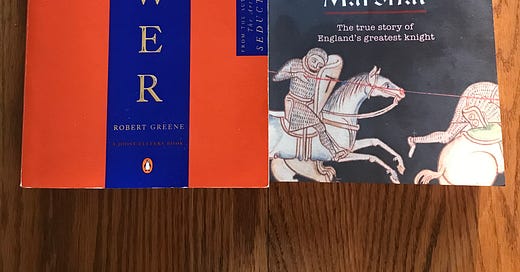Virgin Schemer vs Chad Knight
The Very Different Approaches of Robert Greene and William the Marshal
Who’s a better guide to success in this life—the guru who has studied the dark arts of power, or the simple, honest, and true knight?
With books like The 48 Laws of Power, Robert Greene has established a funny little racket in purporting to teach modern men to be cunning schemers. This volume offers a well-researched and thoroughly amoral trove of insigh…
Keep reading with a 7-day free trial
Subscribe to The Chivalry Guild Letters to keep reading this post and get 7 days of free access to the full post archives.




